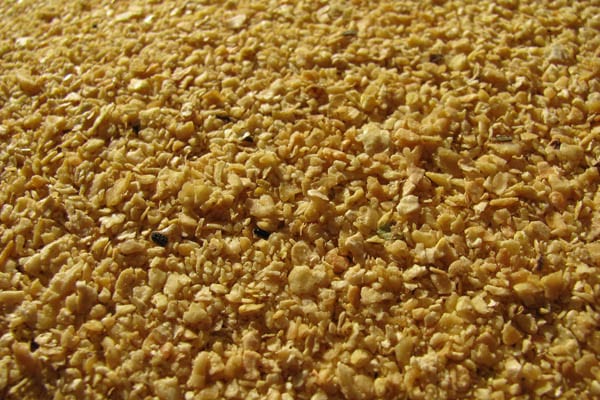Ecuador’s U.S. Soybean Meal Purchases Already Tally $55 Million in 2020 as USSEC Collaborates with Industry, Government for Tariff Relief
- Category:
- General News
- Market Access

Even before the calendar flipped to 2020, USSEC welcomed a monumental success with tremendous dividends for the U.S. soy industry.
Despite having 12 of the United States’ 20 free trade agreements in the Americas, Ecuador is currently not a partner in free trade. Previous efforts were made for the creation of a trade and investment agreement with the South American country, but ultimately proved unsuccessful. (A reinvigoration in discussions for an agreement have popped up recently with renewed interest, but to no avail.) As a result, U.S. exports are subject to World Trade Organization (WTO) appropriate tariff line items.
U.S. soybean meal enjoyed a favorable tax exemption; that exemption, however, was set to expire the moment the clock struck midnight on December 31, 2019.
“Soybean meal is by far the biggest U.S. ag export to Ecuador, so obviously the stakes were high,” remarked Kevin Roepke, USSEC Regional Director – Americas. In 2018, over $120 million of soybean meal was exported to Ecuador, with the next highest agricultural commodity (wheat) at less than $60 million. “Without tariff exemption, the U.S. would not be competitive in that market whatsoever.”
Come January 1, 2020, U.S. soybean meal was subject to 15% ad valorem tax plus the Andean Price Band (CAN) variable levy—more or less 18%.
To address this, USSEC deliberately held their signature annual event, CrushCon, in Quito the first week of December. The event brought together industry stakeholders and relevant members of the soy supply chain to the country. Moreover, USSEC met individually with Ecuadorian feed manufacturers, integrators, associations and importers to collect ideas and strategies, in order to best address the issue.
“Essentially, we came to the conclusion that U.S. soybean meal was not in competition with local soybean farmers. Due to the fact that Ecuador does not have a soybean crushing industry, it made no sense to lock out U.S. soybean meal. The benefits to Ecuadorian food security and international exports of shrimp predicate the tolerance of U.S. soybean meal imports,” commented Mr. Roepke. Ecuador has four main sources of hard currency—flowers, petroleum, bananas and shrimp. Ecuador’s shrimp industry is very important for national economy, as it is completely dollarized, and the shrimp exports bring in nearly $3 billion.
Following the meetings and conference, Ecuador’s Foreign Trade Committee (COMEX) approved a five-year extension through 2024 of all tariff free soybean meal from the United States.
“Needless to say, we were all relieved when we saw Secretary Pinoargote sign the 5-year extension on December 20,” Mr. Roepke said. “A sincere debt of gratitude to all of our partners in the industry and especially the Foreign Agricultural Service (FAS) and the Office of the United States Trade Representative(USTR) for their help as well.”
As a result of this success, immediate results came pouring in. The U.S. Department of Agriculture (USDA) instantly announced a sale of 35,500 metric tons (MT) of soybean meal for the week of Dec 27-Jan 2, followed by a shipment of 32,600 MT for the week of January 3-9 and another one the week of January 10-16, with the most recent sale of 123,000 MT announced this past week—totaling over 158,500 MT in Ecuadorian purchases at an estimated value of nearly $55 million.
USSEC’s commitment to increase U.S. soy sales into the highly competitive South American market is a core pillar of its strategy going forward.